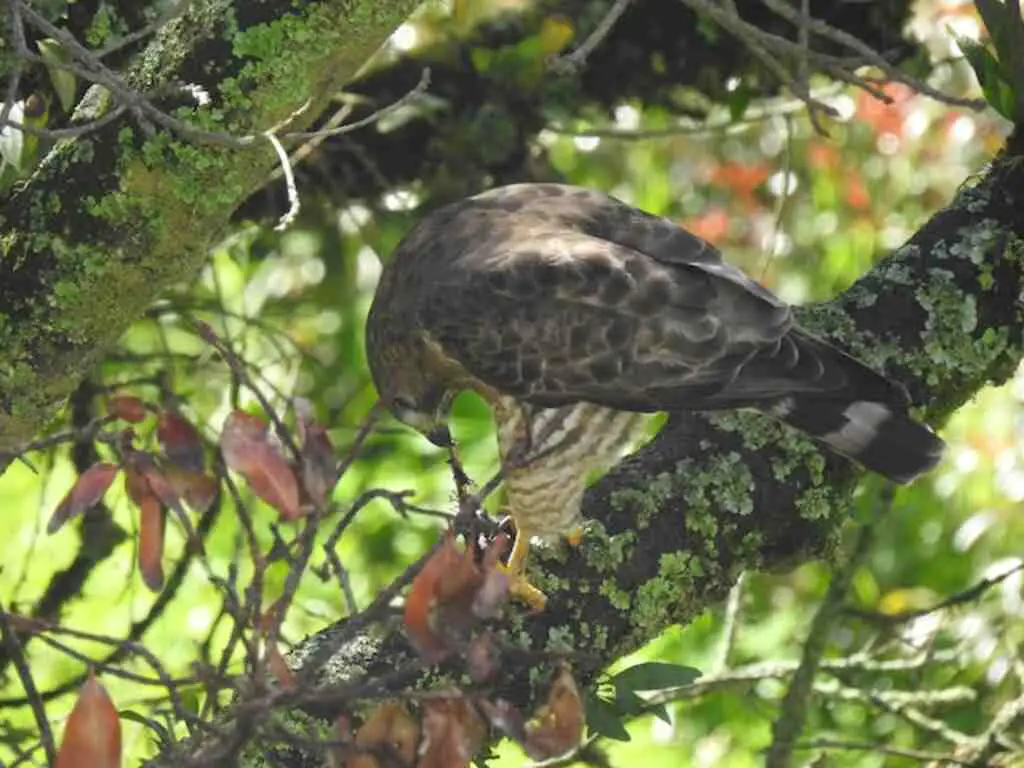Do Hawks Eat Worms? The answer might surprise you! While these mighty hunters, belonging to the family Accipitridae alongside eagles, kites, buzzards, and harriers, are renowned for their predatory prowess, their gastronomic preferences extend far beyond the typical fare.
With over 250 species of hawks across the globe, each possessing its own unique charm, these avian connoisseurs prove that culinary adventures know no bounds.
In this tantalizing article, we’ll uncover the hidden world of hawk cuisine, exploring their unexpected love affair with the wriggly delicacies that dwell beneath our feet.
So, buckle up and prepare to be amazed as we unravel the mysteries of these avian epicureans!
Table of Contents
- 1 Definition of Hawks
- 2 Overview of Their Diet
- 3 Brief Mention of Worms as a Food Source
- 4 The Hawk’s Diet
- 5 Hawks and Worms
- 6 Conclusion
- 7 FAQs: Do Hawks Eat Worms?
- 7.1 Can hawks survive solely on a diet of worms?
- 7.2 Do all hawk species eat worms?
- 7.3 Are worms a primary food source for hawks?
- 7.4 How do hawks catch worms?
- 7.5 Do hawks eat all types of worms?
- 7.6 Are worms nutritionally beneficial for hawks?
- 7.7 How often do hawks eat worms?
- 7.8 Can worms be a substitute for other prey in a hawk’s diet?
- 7.9 Are there any risks associated with hawks eating worms?
- 7.10 Do worms have any impact on hawk conservation efforts?
- 8 Author
Definition of Hawks
Hawks are birds of prey belonging to the family Accipitridae, which also includes eagles, kites, buzzards, and harriers. They have sharp talons and beaks that enable them to catch and kill their prey efficiently.
The physical characteristics of hawks vary greatly between species, but generally include a powerful build with broad wings and a hooked beak.
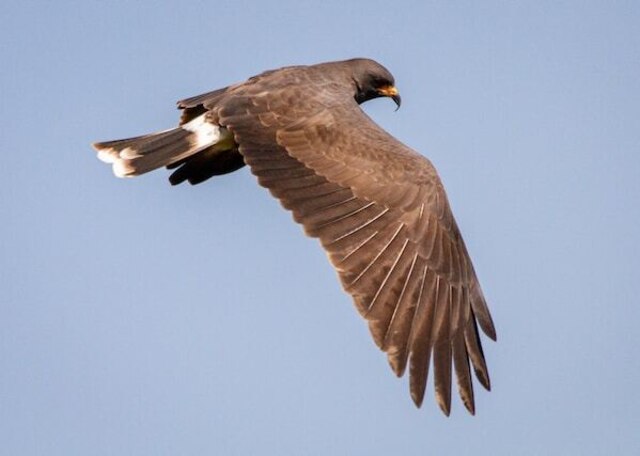
Overview of Their Diet
As mentioned earlier, hawks have diverse diets that mainly depend on the species they belong to. Some hawk species prefer small mammals such as rodents or rabbits, while others primarily feed on birds or reptiles.
Insects also make up a significant portion of some hawk’s diet.
Hunting techniques can also differ between hawk species; some hunt by diving from high elevations, while others use stealth maneuvers through forests or grasslands.
The diet of a hawk will usually reflect its preferred hunting method.
Brief Mention of Worms as a Food Source
While worms may not seem like an obvious food source for raptors like hawks, some species do incorporate them into their diet occasionally.
Earthworms are commonly consumed by red-tailed hawks in the wild when other food sources become scarce during winter months.
Mealworms are another type eaten by captive falcons raised for falconry shows because they’re easy to raise in captivity and provide adequate nutrition for the birds.
Waxworms are also occasionally used as treats by falconers and rehabilitation centers.
Though worms may not make up a significant portion of a hawk’s diet, they can still be an important source of nutrients for these birds of prey.
Understanding what hawks eat is crucial for conservation efforts, and it’s important to know that all parts of the ecosystem can contribute to a hawk’s survival.
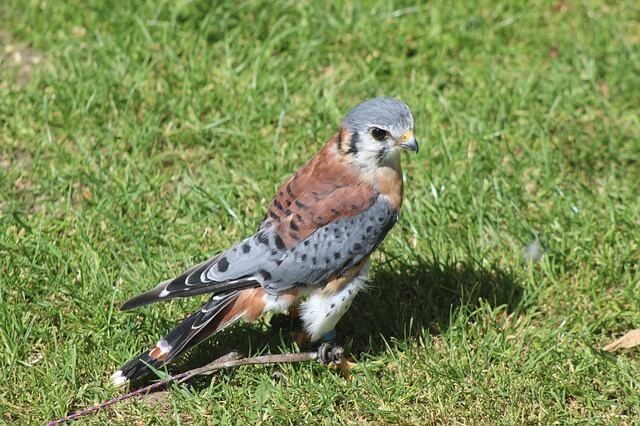
The Hawk’s Diet
Hawks are birds of prey with keen eyesight and impressive hunting abilities. They are known for their sharp talons, hooked beaks, and powerful wings that enable them to soar through the skies in search of prey. These raptors have a varied diet that includes small mammals, birds, reptiles, and insects.
Primary Prey Items
The primary food sources for hawks vary depending on the species and their habitat. Hawks that live in wooded areas tend to feed on small mammals, while those found in open fields may hunt more birds or reptiles.
Despite these differences, there are some common prey items that all hawks like to eat. One of the most popular prey items for hawks is rodents such as mice and voles.
These small mammals are abundant in many habitats and provide a good source of protein for the predator bird. Hawks also feed on other small animals such as rabbits, squirrels, and chipmunks.
Small Mammals
Small mammals make up a significant portion of the hawk’s diet. These animals are easy to catch due to their relatively slow speed compared to birds or reptiles.
In addition, they tend to be active during the day which makes them easier targets for diurnal predators like hawks.
Hawks use their sharp talons to grab onto the animal and their hooked beaks to bite into it during feeding. The bird typically consumes its prey whole, including bones and fur, which provides additional nutrients like calcium.
Birds
Birds also make up a substantial portion of the hawk’s diet, especially those species that live in open areas where avian prey is more abundant.
Some popular birds that hawk feed on include doves, pigeons, quails, and songbirds.
Hawks have a unique hunting technique called stooping, where they fly downwards at high speeds to catch their prey in mid-air.
They use their talons to grab onto the bird and then kill it by biting into the neck or head.
Reptiles
Reptiles are another common food source for hawks. These animals include snakes, lizards, and even turtles. Hatching turtles are especially vulnerable to predation by hawks on their way from the nest to the water.
Hawks hunt reptiles by swooping down from above or waiting for them to come out of hiding. Once caught, the bird uses its beak to deliver a fatal blow to its prey before consuming it whole.
Insects
While not as common as other prey items, hawks also feed on insects. These animals provide a good source of protein, especially during breeding season, when birds need additional nutrients for egg production and chick-rearing.
Hawk’s diet of insects includes grasshoppers, crickets, beetles, and even large moths. The bird may pick up the insect with its beak or use its talons to grab onto it before biting off the head and consuming it whole.
Overall, hawks have a varied diet that consists mainly of small mammals and birds, but also includes reptiles and insects depending on their environment.
This adaptability is one of the reasons why they are such successful predators in many different ecosystems around the world.
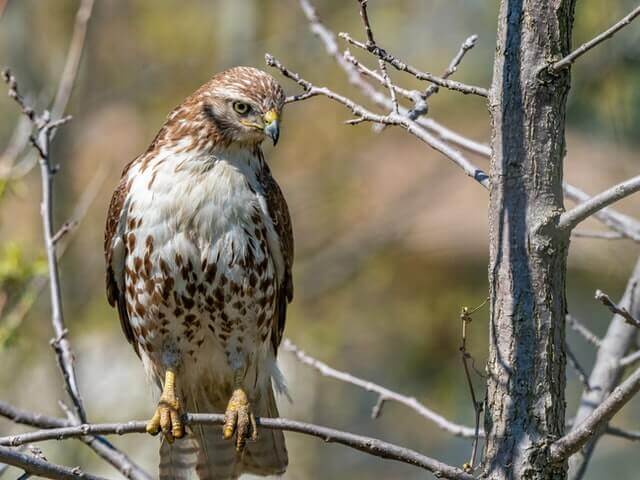
Hawks and Worms
Do Hawks Eat Worms?
Yes, hawks do eat worms. While worms may not be a significant part of their diet, certain hawk species incorporate earthworms, mealworms, and waxworms into their food sources.
Worms provide protein, vitamins, and minerals necessary for their health. Hawks’ diets primarily consist of small mammals, birds, reptiles, and insects.
Types of Worms Hawks Eat
Hawks are known to consume a variety of prey items including small mammals, birds, reptiles, and insects.
However, worms can also be an important food source for hawks. The types of worms that hawks eat include earthworms, mealworms, and waxworms.
Earthworms are the most commonly consumed type of worm by hawks. They can be found in soil and leaf litter in a variety of habitats including forests, grasslands, and wetlands.
Mealworms are also a popular prey item for hawks in captivity, as they are easy to raise as feeder insects. Waxworms are less common but still consumed by some hawk species.
How Hawks Catch Worms
Hunting techniques for earthworms and mealworms differ from those used to catch other prey items. Hawks typically search for earthworms on the ground by using their keen eyesight to detect movement or vibrations in the soil.
Once they locate an earthworm, they use their sharp talons to dig it out of the ground before consuming it. Mealworm hunting techniques vary depending on whether the hawk is in captivity or in the wild.
In captivity, mealworm feeder dishes can be provided for hawks to easily catch their prey item.
In the wild, however, mealworm hunting requires more effort as these insects are not commonly found crawling on the ground or vegetation like other insect species.
Waxworm feeding behavior is also unique compared to other prey items consumed by hawks.
Instead of using their talons to capture wax moths containing wax larvae (the stage when this insect is commonly fed to birds), hawks will use their beak to break open their hard exoskeleton before ingesting them whole.
Nutritional Value of Worms for Hawks
Worms provide a source of protein, vitamins, and minerals that are essential for maintaining a hawk’s health. In fact, the protein content in worms is comparable to that found in other prey items consumed by hawks.
In addition to protein, worms are also a good source of vitamins and minerals such as calcium, iron, and magnesium.
These nutrients can help support the growth and development of hawks from chicks to adults.
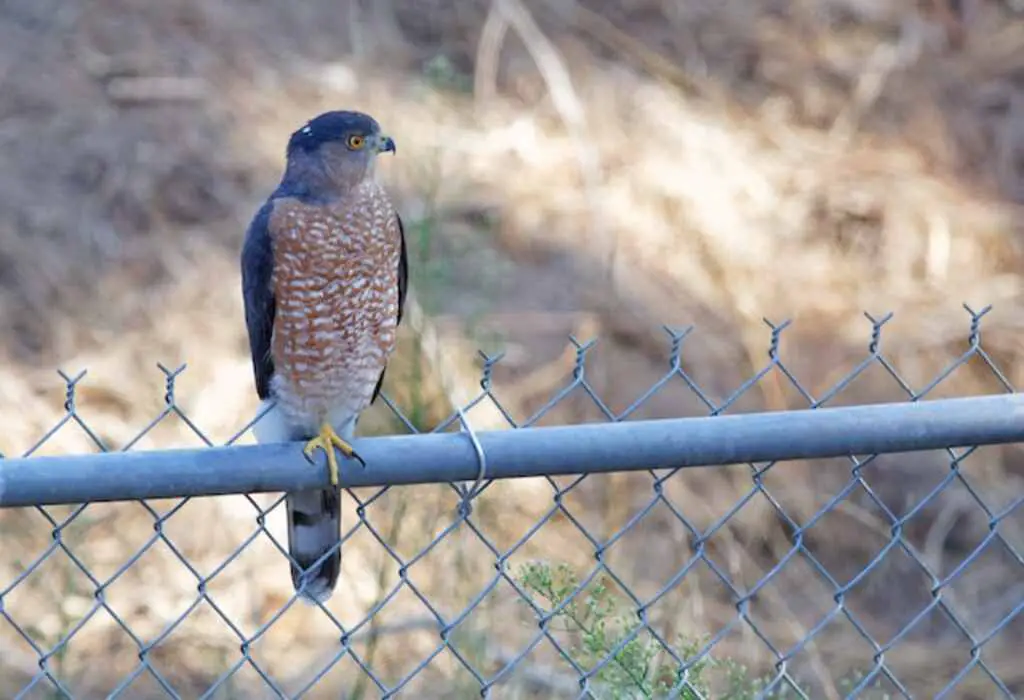
Conclusion
Worms can be an important food source for hawks. Earthworms are the most commonly consumed type of worm by hawks, while mealworms and waxworms are also consumed on occasion.
The nutritional value of worms is high in terms of protein content and vitamin/mineral content.
Understanding the importance of worms in a hawk’s diet can help with conservation efforts for both hawks and their prey items.
By preserving habitats where earthworms thrive, for example, we can indirectly support hawk populations as well, since they depend on this food source.
Overall, the relationship between hawks and worms is yet another fascinating aspect of these amazing birds that continue to captivate us with their hunting prowess and unique dietary habits.
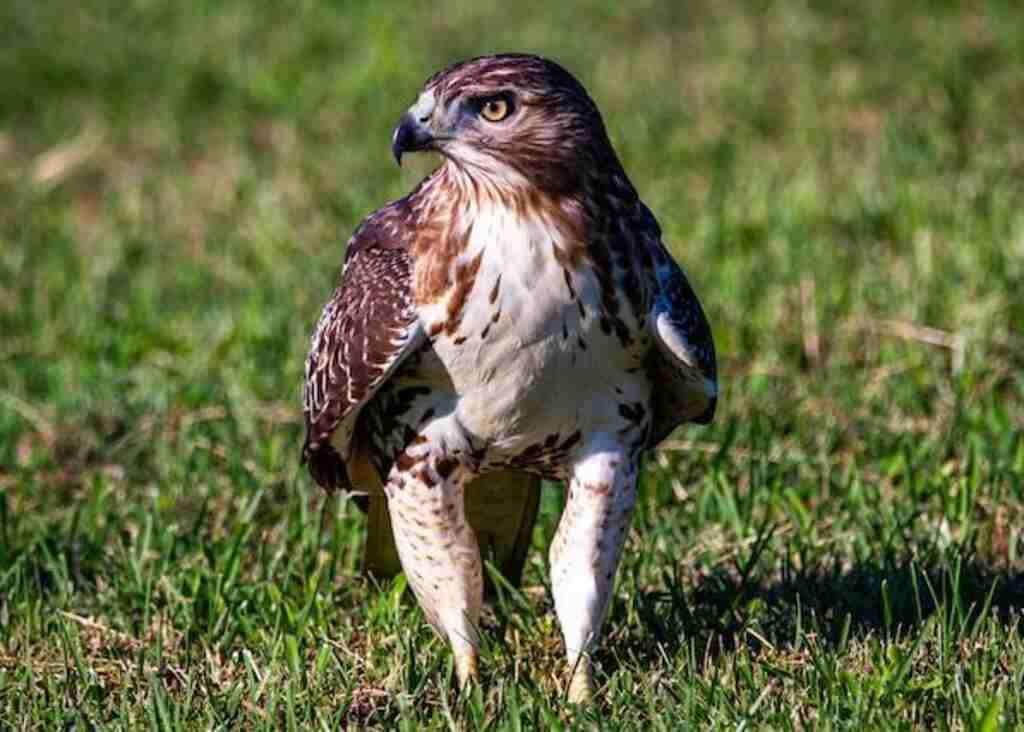
FAQs: Do Hawks Eat Worms?
Can hawks survive solely on a diet of worms?
No, hawks cannot survive solely on a diet of worms. While they do consume worms occasionally, hawks have a varied diet that includes small mammals, birds, reptiles, and insects, which provide the necessary nutrients for their survival.
Do all hawk species eat worms?
Not all hawk species eat worms regularly. Some hawk species incorporate worms, such as earthworms, mealworms, or waxworms, into their diet occasionally, particularly when other food sources are scarce.
Are worms a primary food source for hawks?
Worms are not considered a primary food source for hawks. Hawks primarily rely on small mammals, birds, reptiles, and insects as their main prey items, with worms playing a minor role in their overall diet.
How do hawks catch worms?
Hawks locate worms by using their keen eyesight to detect movement or vibrations in the soil. They then use their sharp talons to dig the worms out of the ground before consuming them.
Do hawks eat all types of worms?
Hawks commonly consume earthworms, which are the most commonly found type of worm in various habitats. They also eat mealworms and, to a lesser extent, waxworms.
Are worms nutritionally beneficial for hawks?
Worms provide protein, vitamins, and minerals that are beneficial for a hawk’s health. They offer a good source of nutrients, including calcium, iron, and magnesium, which support the growth and development of hawks.
How often do hawks eat worms?
The frequency of hawks consuming worms varies depending on the availability of other food sources. They typically eat worms when other prey items are limited, such as during the winter months or in captive settings.
Can worms be a substitute for other prey in a hawk’s diet?
Worms cannot serve as a complete substitute for the diverse range of prey that hawks require. They are an occasional addition to their diet, but cannot fulfill all the nutritional needs of hawks.
Are there any risks associated with hawks eating worms?
There are no significant risks associated with hawks consuming worms. However, it is important for hawks to maintain a balanced diet that includes a variety of prey items to ensure optimal health and survival.
Do worms have any impact on hawk conservation efforts?
Understanding the role of worms in a hawk’s diet contributes to conservation efforts. By preserving habitats where worms thrive, we indirectly support hawk populations as they rely on this occasional food source.

